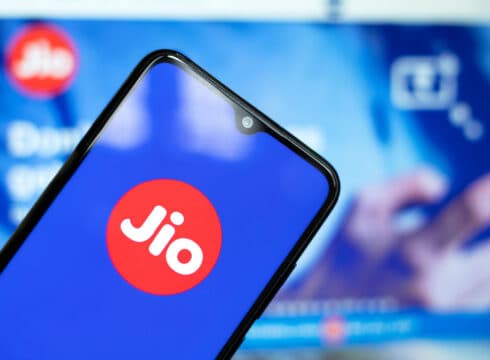Reliance Jio Infocomm Ltd has reportedly opposed the telecom regulator’s proposal to bring OTT content services under the authorisation of the Indian Telecommunications Act, 2023
In its counter-comments, Reliance Jio argued that this principle does not apply to OTT platforms
Jio has now joined the list of Content Delivery Network (CDN) companies, including Netflix, Amazon, Universal Studios and Warner Bros, in opposing the telecom regulator’s proposal to regulate them
Inc42 Daily Brief
Stay Ahead With Daily News & Analysis on India’s Tech & Startup Economy
Reliance Jio Infocomm Ltd has reportedly opposed the telecom regulator’s proposal to bring OTT content services under the authorisation of the Indian Telecommunications Act, 2023.
As per a Businessline report, in its counter-comments to the Telecom Regulatory Authority of India (TRAI), the company said that there is no basis for subjecting OTT content services to the authorisation requirements of the Indian Telecommunications Act, 2023.
Jio has now joined the list of Content Delivery Network (CDN) companies, including Netflix, Amazon, Universal Studios and Warner Bros, in opposing the telecom regulator’s proposal to regulate them.
Earlier these companies argued they are not telecom operators and, therefore, do not fall under the regulator’s jurisdiction.
Bharti Airtel Ltd and other stakeholders have previously advocated for OTT platforms delivering broadcast content via broadband or mobile to be brought under the authorisation framework, citing the principle of “same service, same rules.”
However, in its counter-comments, Reliance Jio argued that this principle does not apply to OTT platforms.
While Jio’s original submission did not explicitly mention OTT services, the company has previously called for regulating OTT communication platforms but has not clarified how these differ from OTT content platforms.
In its letter, Jio emphasised the distinction between OTT platforms and Distribution Platform Operators (DPOs), stating, “OTTs differ from other DPOs such as cable TV, IPTV, DTH etc., as these latter deliver broadcasting services through broadcasting networks established by them. Furthermore, the licensed DPOs transmit licensed TV channels after acquiring them from broadcasters under the provisions of Uplinking and Downlinking Guidelines. Whereas OTT content providers deliver content through public internet.”
The company further argued that the Information Technology Act, 2000 already govern OTT content services, and its associated Rules.
Other stakeholders like the Broadband India Forum (BIF) said, “TV and radio broadcasters follow a ‘push-model’ as they deliver contents to mass audiences/viewers at a predetermined schedule. OTT platforms make content available to subscribers over the public internet and operate on a pull model (i.e. subscribers choose and request for content they wish to watch from an online library made available by the OTT platforms).”
On the other hand, Airtel argued that any platform delivering content similar to that provided by regulated distribution platforms should be brought under an equivalent regulatory regime.
“OTT delivering broadcast content through broadband / mobile provide the same content as provided by DTH operators to subscribers with no commensurate obligations of any kind. This approach goes against the basic premise of TRAI’s endeavour to have a balanced regulatory framework. These anomalies lead to risks such as exclusionary and discriminatory impact for subscribers who may not be able to access the same broadcast content on their choice of delivery medium,” said Airtel, as reported by Businessline.
Particularly, Airtel asked that Prasar Bharti’s OTT platform services WAVES also be brought within the purview of the authorisation framework.
{{#name}}{{name}}{{/name}}{{^name}}-{{/name}}
{{#description}}{{description}}...{{/description}}{{^description}}-{{/description}}
Note: We at Inc42 take our ethics very seriously. More information about it can be found here.


